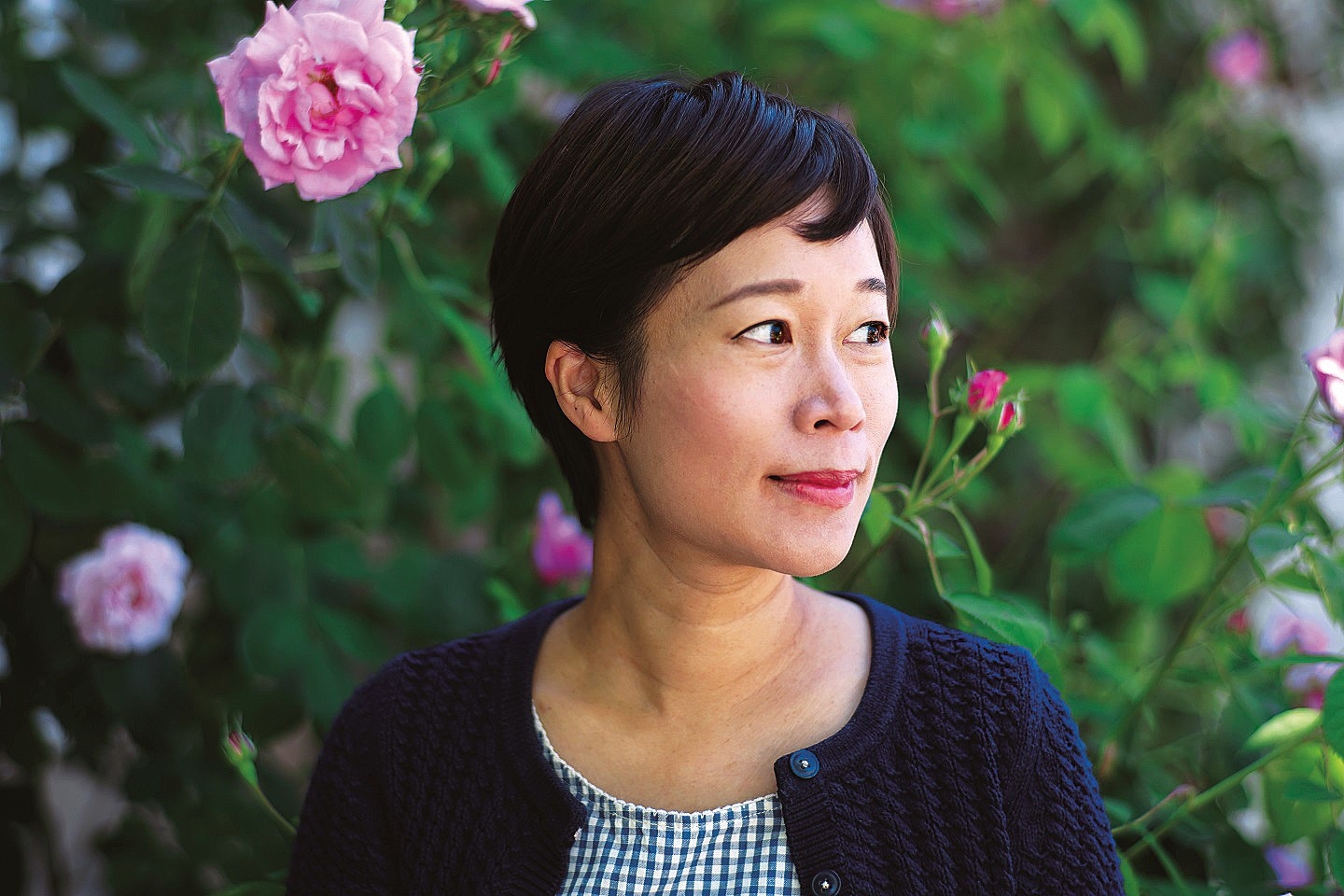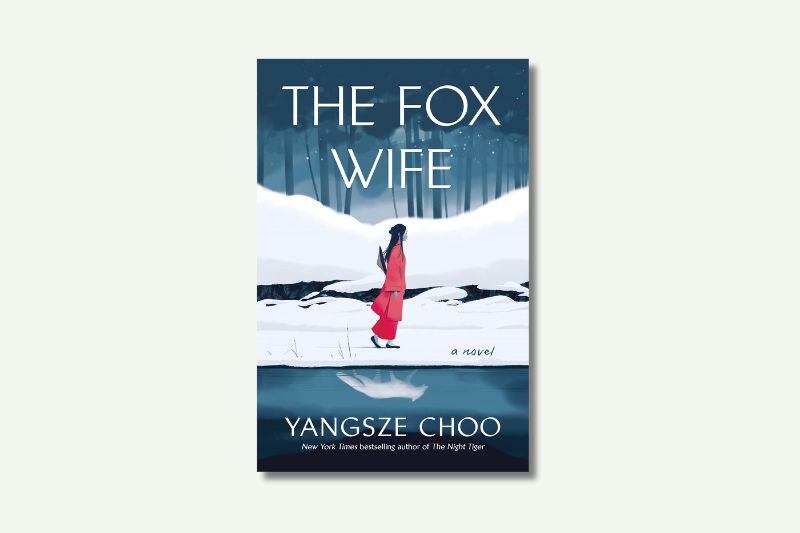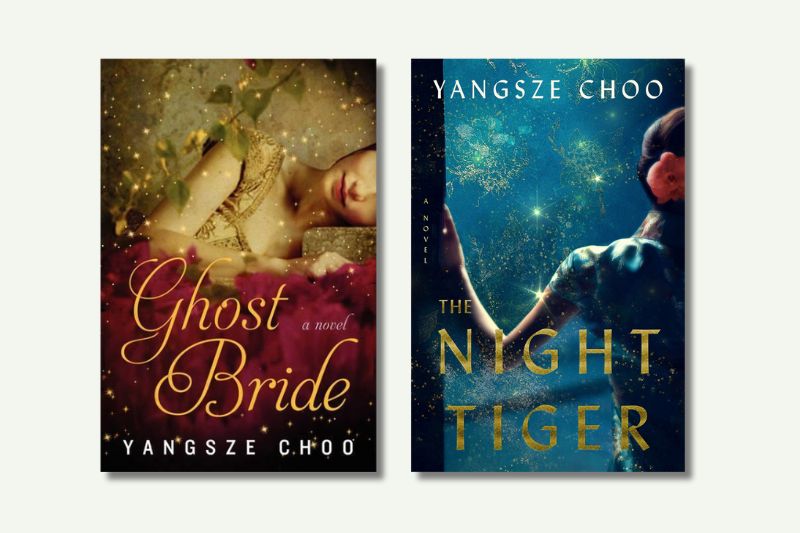
As an author, Choo’s appeal lies in her lush but easy-to-follow-along backdrops and refreshed variations of folklore from our childhood years (All photos: Yangsze Choo)
Supernatural and enigmatic beings have long played a key role in making mythology the alluring subject it is, and Chinese folklore is no different. Famous creatures from the nation’s extensive history include the Chinese dragon, one of the 12 zodiac animals signifying luck and prosperity; the qilin/kirin, an auspicious horned horse-serpent hybrid that is often made into figurines; and the pixiu, a winged lion prevalent in feng shui practices for its supposed ability to attract wealth.
That said, no one legend has achieved the pop culture prominence of the huli jing or fox spirit, also recorded as slightly differing entities like the hu xian (fox immortal) and the jiu wei hu (nine-tailed fox). Japanese renditions are known as kitsune and Korean, gumiho.
Traditional depictions see them as shape-shifters who transform into beautiful women with mischievous tendencies. Some stories portray them as benevolent beings who befriend and aid heroes, while others paint them as malicious seductresses who trap unsuspecting men. Either way, huli jing and humans have a complicated relationship, and this dynamic acts as the backdrop in Malaysian-Chinese author Yangsze Choo’s third novel, The Fox Wife, expected to release on Feb 13. If a mystery-historical fiction blend has your attention piqued, but you are unsure if this particular read is worth the trip to the bookstore (or your shipping coins), consider this writer’s thoughts while making your own conclusion. Note: Slight spoilers ahead.
Set in 1908 Manchuria (a region in present-day Northeastern China), a few years before the collapse of the Qing dynasty, the chapters alternate between Snow, a female fox spirit who becomes a maid to the matriarch of a famed medicine house as she searches for the man responsible for the death of her daughter, and Bao, a detective with a bizarre ability to detect lies, hired to uncover the identity of a frozen Jane Doe found on a restaurant’s doorstep. As their plotlines intertwine, mortals and spirits mix, and the truth behind a string of peculiar deaths and disappearances unravels to forever alter the characters’ lives, shattering beliefs and prejudices each harboured about the other species.
the_fox_wife.jpg

The Fox Wife is far from Choo’s introductory foray into the world of spiritual creatures and cultural superstitions, though it is her first set outside of old-day Malaya. Stylistically, it reads similarly to her earlier works — The Ghost Bride and The Night Tiger. The author has a talent for creating lived-in environments that are rich enough to give you a decent sense of the time period without becoming convoluted. Snow’s diary-like first-person chapters speak in the past tense, punctuated with the occasional footnote as if to clarify confusion or queries from readers who chance upon her buried journal entries.
To find out what happened to her, the reader has to follow Bao’s third-person present-tense sections, as if we are joining his investigation in real time. Even the side characters feel complex, a pleasant shift from several in Choo’s previous tomes. Some of the earlier chapters drag and meander a bit, particularly a few of Bao’s longer ones, but the pace picks up soon enough to keep you turning the pages.
A minor disappointment came in the form of an anticlimactic resolution for Snow’s journey to search for her enemy. The beginning chapters had built up her plotline tremendously, only for the crescendo to occur abruptly and off-page. As a reader, you sympathise with Snow when this happens and relate to her flurried frustrations, though this is perhaps a good reflection of how few things in real life go the way we wish and soldiering on is sometimes the only choice we have.
Choo’s signature underscoring of feminism and systemic sexism is a familiar treat, amplified through the constant objectification experienced by her female characters, especially Snow, and the chauvinist foundation of fox folklore that has historically illustrated these trickster spirits as women to criticise female cunning and deceit. Choo is unafraid to zero in on this element and has written her fox protagonist to mirror the ethos of modern feminists — angry and disturbed by the violations she and others have been subjected to, existing defiantly in a world that works against her.
yangsze_choo_books.jpg

Snow’s primary motive throughout most of the book, to avenge her child who was killed by men, drives the point further — for what better echoes the female struggle than the anguish a mother feels when her daughter is destroyed by male greed and brutality?
The book also refers to issues of xenophobia, racial stereotyping and class systems, particularly in the cases of the foxes and Snow’s elderly employer of Mongolian descent, Tagtaa. Positioning foxes as a relatively impassive but unwelcome minority secetly living among the larger human population who historically hunted and violently purged them from cities, foxes become a clear analogy for marginalised people who adhere to extreme cautions to survive. Tagtaa presents an even clearer (and factual) example upon noting her background as a Mongolian concubine’s daughter who grew up undermined and bullied in her own household for not complying with Han Chinese norms like foot-binding. Throughout the book, the concept of hatred, born out of fear, for entities that contrast one’s own self and customs is a prevalent theme that hits incredibly close to home.
Overall, The Fox Wife masterfully meshes fantasy and history, thanks to Choo’s knack for crafting a credible and charming setting that works even if you know next to nothing about Chinese history or fables; though if the reader wishes to dig a little deeper into the time period and huli jing mythos without falling down Internet rabbit holes, they may do so with the help of the detailed end notes.
Romance takes a more subdued role in this book compared to its predecessors, offering an opportunity to get wrapped up in the strong themes of unwavering devotion of all sorts, as well as the overwhelming sense of grief and regret that can come with losing a loved one, which though melancholic, gives us insight into the complexities of human nature. If you can forgive the initial slow burn and appreciate fiction laced with dense nuances, then this is a safe addition to your reading list.
Purchase 'The Fox Wife' for RM145.93 at Kinokuniya here.
This article first appeared on Feb 5, 2024 in The Edge Malaysia.


